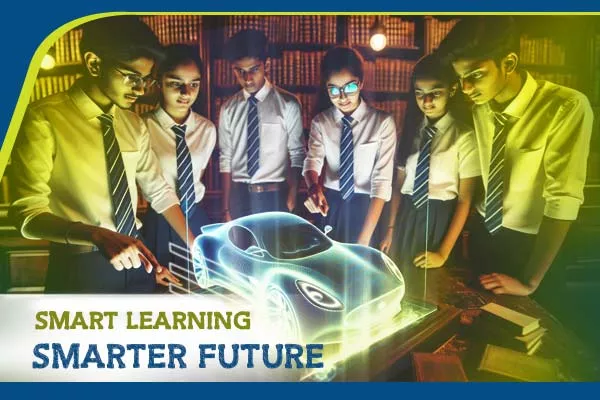Category: Recommendation

“One of the most important aspects of technology in education is its ability to level the field of opportunity for students.”
Technology can be a powerful tool for transforming learning. It can help to affirm and advance relationships between educators and students, reinvent our approaches to learning and collaboration, close long-standing equity and accessibility gaps, and adapt learning experiences to meet the needs of all learners.
Our schools, community colleges, adult learning centers, and universities should serve as incubators for exploration and invention. Educators should be collaborators in learning, seeking new knowledge and constantly acquiring new skills alongside their students. Education leaders should establish a vision for creating learning experiences that provide the necessary tools and supports for all learners to thrive. In the ever-evolving landscape of education, the advent of Smart Learning through EdTech platforms is reshaping the way institutions operate and students learn. This transformative approach, driven by advanced technologies like ERP, SIS, and AI, is ushering in a new era of efficiency and effectiveness. Let's delve into the key aspects of Smart Learning and how it is revolutionizing education.
Smart Learning is a broad concept that incorporates cutting-edge technologies to improve the learning experience for both faculty and students. The incorporation of cutting-edge EdTech tools like Student Information System (SIS), Enterprise Resource Planning (ERP), and Learning Management System (LMS) is causing a paradigm shift in the educational landscape. Simply put, Smart Learning automates academic and administrative processes, making the educational environment more streamlined and efficient.
The incorporation of Artificial Intelligence (AI) into education represents a paradigm shift. The application of artificial intelligence in education focuses on personalizing the learning experience, designing tailored educational journeys, and reshaping traditional learning methodologies. Among the most important applications of AI in education are:
As we delve deeper into the integration of AI into education, ethical concerns become more prominent. Safeguarding student data, ensuring accessibility to AI tools, and addressing biases in algorithms all become critical ethical responsibilities. Finding the right balance between technological advancements and ethical considerations is still a pressing issue.
As we travel through the Smart Learning landscape, new challenges and opportunities appear on the horizon. Ethical considerations, such as data privacy, algorithm fairness, and inclusivity, are challenges that must be navigated carefully. However, the opportunities are equally compelling, with advancements in Natural Language Processing, VR/AR integration, learning analytics, and machine learning promising a future in which education becomes even more immersive, personalized, and effective.
The time has never been better to use technology to enable and improve learning at all levels, in all settings, and for people from all walks of life. From the modernization of E-rate to the proliferation and adoption of openly licensed educational resources, the critical pieces are in place to fully realize the transformations made possible by technology in education. Educators, policymakers, administrators, and teacher preparation and professional development programs should incorporate these tools and resources into their practices as soon as possible. Although the presence of technology does not guarantee equity and accessibility in learning, it does have the potential to reduce barriers to both in previously unimaginable ways. Regardless of their perceived abilities or geographic location, all learners can gain access to resources, experiences, planning tools, and information that can set them on a path to acquiring expertise that was unimaginable a generation ago.
The combined power of Smart Learning and AI is more than just a convergence of technologies; it is a marriage of innovation and possibility. Smart Learning does not replace educators; rather, it equips them to create individualized, engaging, and impactful learning environments. As we navigate this dynamic landscape, ensuring ethical considerations and embracing these technological advancements will redefine the future of education — a future where learning knows no bounds. Smart Learning is more than just a trend; it is a gateway to a smarter, more welcoming future for education, awakening the inherent potential of every learner!
 Blog: Recently Added
Blog: Recently AddedFor years, higher education in India came with an almost unspoken rule: if you want a “good” de...
For most parents, choosing a school isn’t just an academic decision; it’s emotional, stressful, and...
Deciding on a school today is quite different from what it was a decade ago. Parents are not just co...
While making a decision about a school is not a very easy task, it is now more complex.While making...
Selecting the proper school has never been an easy task. For parents of Indian children, it is often...
A decade ago, school admissions were characterised by queues, forms, physical counselling, and limit...
It has never been an easy decision for parents in India to choose a school for their children. Howev...
Metro City School Fee Comparison: What Parents Really Want to KnowFor parents in metro cities of Ind...
Some of the strongest lessons in childhood aren’t learned in a classroom. They occur when one is tou...
The arts of music, dance, drama, and visual arts have traditionally been at the very centre of India...

